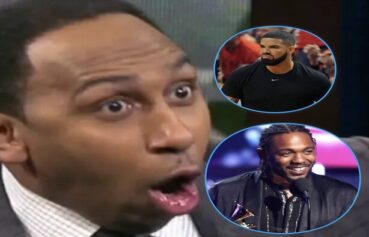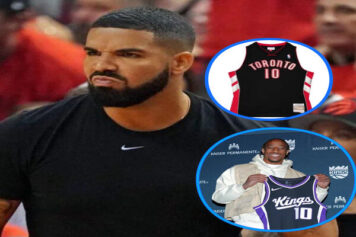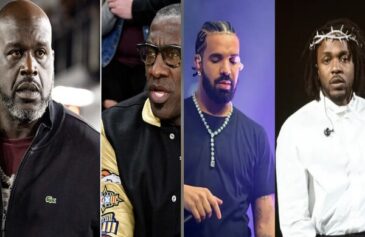And like biting gnats rising from a sun scorched sub-Saharan landscape once the dusk advances, a new season of seemingly nonsensical, celebrity-fueled discourse is stabbing us in our eardrums.
A storm of public opinion erupted over Kendrick Lamar’s comments, followed by rapper Azalea Bank’s reprimand of him and so on and so forth. It is a peculiar and abstract reality in play when you think about it. On one hand we have rappers who are speaking out on a course of issues that they feel are relevant to them, and that's a great thing in the immediate aftermath of a Black community that is reeling from a 2014 in which it appeared to be open season on Black men with the deaths of Eric Garner, Mike Brown, Jr., John Crawford and Tamir Rice.
So the positive aspect about this phenomenon is the many celebrities who are sensitive to the struggle and now feel compelled to give their interpretation of what reality is and is not for Black folks in America. Indeed, whenever a generation is moved to speak openly and honestly about anything it is a positive thing, right? Especially young Black celebrities right? To be certain, it’s not as if a rapper and an R&B singer never disagreed with one another over the most nebulous excreta the mind can conceive.
But the situation currently being played out on the Twitter-sphere is a bit different.
Though much of it is expletive laced and ill-mannered, the situation being played out between Kid Cudi, Lupe Fiasco and Azalea Banks over Kendrick Lamar’s comments in Billboard is a philosophical discussion being exercised in the age of social media. While condemning the death of Michael Brown, Kendrick Lamar asked the Black community to reflect to respect itself. A daring endeavor to be certain. He had to have known that by venturing to do so would cause a wave of condemnation from friends, fans and foes alike to come raining down. But he’s one of the hottest, young Black entertainers in this post Michael Brown Awakening that is occurring amid many of today's youth. So as a young man who is sensitive to the struggle, here’s what Lamar said from his heart of hearts.
"I wish somebody would look in our neighborhood knowing that it's already a situation, mentally, where it's f—ked up. What happened to [Michael Brown] should've never happened. Never. But when we don't have respect for ourselves, how do we expect them to respect us? It starts from within. Don't start with just a rally, don't start from looting — it starts from within."
As Ice-T once said, “Freedom of speech, but watch what you say” because Lamar had to have known someone would hitch themselves counter to his viewpoint for the sake of garnering their own buzz in the wake of Lamar’s comet.
"The dumbest shit I've ever heard a black man say." said Azalea Banks via Twitter. She also tweeted her consternation over the fact that the Compton, CA raised rapper made his comments to a white publication. Whether or not Banks is on point, or is even being sincere in trying to make a point, is irrelevant to this writer. The fact that there is an attempt at intellectual discourse between rappers is significant and hopefully lasting. Rapper Kid Cudi took to Twitter in response to Lamar’s Billboard comments, but was rebuffed by rapper Lupe Fiasco via Twitter.
Dear black artists, dont talk down on the black community like you are Gods gift to niggaz everywhere.
— Scott Mescudi (@KidCudi) January 10, 2015
How about you stop shitting on the people who really cared about your well being when this biz was ripping you apart. Fake ass @KidCudi
— Lupe Fiasco (@LupeFiasco) January 10, 2015
Back in the early 90s, a great number of nappy-headed young Generation Xers really believed in the transformative properties of hip-hop music. We of the glass-strewn playgrounds and hide-and-seek games in abandoned buildings grew into early adulthood believing hip-hop would, and could, change the world. Fast forward to just yesterday and we find complaints from fans and enemies regarding the current generation of young, Black fame and fortune’s take on certain key issues. Yet for the vast majority of us, those dreams were extinguished by the pervasiveness of gangster rap over anything positive on the radio airwaves for the sake of getting paid.
Three unsolved superstar rapper deaths later and we find a generation that is awash with the means to communicate just about anything they so please. They can communicate any manner of thought, action or item across the digital landscape in the blink of an eye. Prior to the death of Trayvon Martin and the subsequent bloody summer of 2014, it was a pretty safe bet that just about everything to come out of your favorite rapper’s mouth would have had something to do with money, clothes and hoes. However, as the current war of words and ideas plays itself in the media, we see change in what many of these young Black celebrities find important. As it stands, the Cult of Personality effect that many celebrities have on their fans is more pervasive in the United States than anywhere else and like never before. One can only hope that this is the beginning of a positive thing rather than the incessant prattling of the immature and the artificially important.
Though it does pain one to see these types of things play out, I do know what I’m looking at.
In a world filled with injections, silicone, auto-tune and all manner of fakery and digital wizardry, somebody is trying to keep it real. A young Black man from Compton reached the mountain top, and when he grabbed that heavenly megaphone to speak from his heart of hearts, he was immediately reprimanded by the very constituency that he thought he was speaking to, and for. The manner of backlash to Lamar from so many amid a community whose overall murder rate, while significantly down from years’ past, leads that of all other races from a percentage basis, and in which gang violence is a clear and present danger for all Black males between 17-24, was a bit curious. But again, the fact that Kendrick Lamar dared to step out on that philosophical limb and say what he said was brave and genuine, though the motives of those celebrities who have gone after him are unclear. Their purpose in jump starting this conversation cannot be understated either.
Like the second immediately before it, and the countless hours to follow, this point in time is particularly unique in that history has raced through the ether to witness these circumstances, relay these lessons and record the outcome.
Epilogue:
On Sunday, January rapper Common and crooner John Legend took the stage at the 72nd annual Golden Globe Awards to accept the trophy for best original song for “Glory” from the movie Selma. As many of his fans likely suspected, Common used his moment to say the following;
“I am the hopeful black woman who was denied her right to vote (and) I am the caring white supporter killed on the frontlines of freedom,” he said. “I am the unarmed black kid who maybe needed a hand but was instead given a bullet,” he continued. “I am the two fallen police officers murdered in the line of duty."
The irony of Common’s comments, though not directed in any way at Kendrick Lamar, are in contrast to his comments by recognizing the humanity of all in the struggle rather than an inverted view of Black culture, interestingly enough. I’m not saying one point is any more or less valid than that of the other. But for me, the attempt at philosophical discourse from those rap celebrities who at one time would have been more likely to fight at a club or beat up a fan than discuss social awareness is a fairly big deal.
My hope is that we are witnessing a general changing of the celebrity sphere of influence toward things of greater importance.



